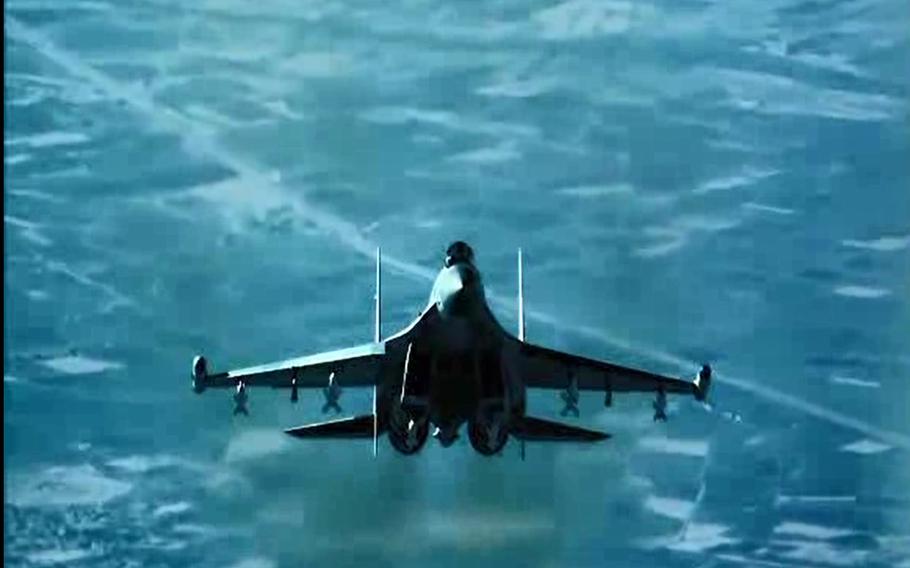
A Russian fighter jet prepares to deploy flares over an MQ-9 drone in Syria on July 23, 2023. Russian flights over U.S. bases in Syria pose an increased chance of an accidental shootdown and an escalation into war, according to defense analysts. (U.S. Air Forces Central)
Russian fighter jets are creating the risk of an accidental shootdown by flying over U.S. bases in Syria without telling American counterparts first, a U.S. defense official warned.
“Russia has continued to violate protected airspace above U.S. and coalition positions in Syria,” Capt. Daniel de La Fe, a spokesman for 9th Air Force (U.S. Air Forces Central), said Thursday. “Russia’s violations of this airspace have the potential to be misinterpreted as an act of aggression and lead to escalation.”
Drone attacks by Iranian-backed militias already have U.S. troops stationed in the Middle East on high alert for aerial threats, and the Russian overflights could put them on edge even more, military officials and analysts said.
Russian aircraft flying over American bases in Syria are also most likely collecting intelligence and sharing it with adversaries of the U.S. in the region, Joseph Votel, a retired general who helmed U.S. Central Command from 2016 to 2019, said Thursday.
U.S. troops in Syria and Iraq have faced more than 100 attacks from Iranian-backed militias since the start of the Israel-Hamas war on Oct. 7, the Defense Department says.

A Russian fighter plane flies close to a U.S. MQ-9 drone before deploying flares over it July 23, 2023, in Syria. One of the flares struck the drone, severely damaging its propeller. Despite the damage, the aircraft returned to its home base. (United States Air Forces Central)
A drone attack on a base in northern Iraq on Christmas left three U.S. service members injured, leading to retaliatory airstrikes.
The downing of a Russian pilot could lead to open conflict, said Votel, now a senior fellow at the Middle East Institute.
“I am always concerned about the potential for escalation and for one incident elevating the overall posture,” he said.
Votel and a U.S. defense official said there have been fewer of these overflights and airspace violations since Oct. 7 than there were over the summer.
That was when Russian pilots attempted to goad U.S. counterparts into dogfights, and at one point a Russian fighter jet in Syria fired flares at a U.S. drone and damaged its propeller.
Although both Russia and the U.S. have declared missions in Syria to defeat Islamic State, their backing of opposing Syrian groups has led to deconfliction protocols.
These include agreements on areas where the two countries pledged to notify each other prior to transiting. Both sides have accused the other of violating these agreements.
Russia does not want a regional war between its ally Iran and the U.S., but it also wouldn’t mind if Middle Eastern conflicts distract the Pentagon from the war in Ukraine, Jonathan Lord, a senior fellow at the Center for a New American Security, said Thursday.
“They’re definitely stirring the pot,” Lord said. “Because tensions are generally heightened, there is a greater risk of miscalculation, everyone’s a little jumpier and the Russians are ones to press in those situations.”
In addition, Russian planes flying over American bases have been equipped with sensors that most likely gather info, and Moscow has a motive to disclose any data they collect to Iran and Syria, U.S. military leaders and analysts say.
“I think you have to make that assumption going into this,” Votel said.